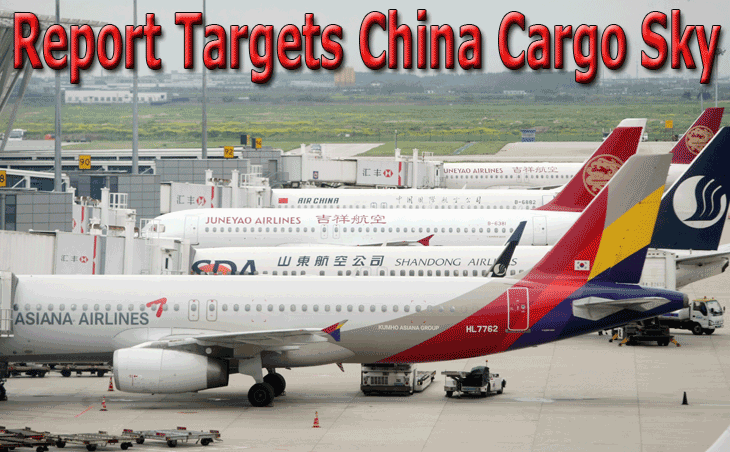Report Targets China
Cargo Sky

The financial viability
of China’s airlines was recently put under Macquarie Research analysts’
considerable microscope.
While the performance of their respective
freight divisions is a major concern for the country’s leading airlines,
not all carriers are suffering equally.
According to Macquarie, Chinese airlines
are due for a “choppy ride” in the months and years ahead,
with margins set to remain thin despite robust domestic passenger traffic
growth.
International pax movements will prove the
“new growth engine” for volumes as disposable income rises,
but these are currently loss-making.
Domestic passenger revenue streams are also
under pressure from LCCs and high speed rail alternatives.

Back To School . . . Chinese
kids eat watermelons to mark Liqiu, or the Beginning of Autumn on
the Chinese lunar calendar, at a kindergarten in Handan City. Liqiu
falls well before the summer heat abates, so Chinese people traditionally
celebrate the day by eating watermelons, or kenqiu (which means
biting autumn), in hopes of swallowing down the hot weather. Ancient
Chinese believed the practice could also prevent prickly heat, which
was common in the old days without modern amenities like air conditioners
or fans.
Works for us . . . |
In terms of financial performance,
Macquarie estimates China’s leading airlines were all loss-making
in the first quarter of 2014 except for Air China, although the analyst
expects profits to improve as the year progresses.
On the cargo side, Macquarie believes China’s
airlines have scope to make numerous performance improvements which could
help boost bottom lines, but also concludes that major gains will only
come when global air freight markets fully recover.
“The air cargo segment remains a drag
on earnings, as we estimate global air cargo markets have remained loss-making
this year,” said the analyst, adding that Air China Cargo had reported
an RMB 349 million loss in 2013.
Macquarie said one of the reasons for the
losses by China’s airlines was that the global air cargo market
was still suffering from excess supply despite global airlines reducing
freighters operated.
“Although air cargo demand has improved,
it is offset by capacity increasing,” said the report.
Macquarie believes Air China, one of the
country’s major carriers in terms of its cargo performance due to
its lower cost base, may have seen its air cargo segment return a profit
in 2Q14.
“The air cargo sector was loss-making
in 2013, but Air China’s cargo business was profitable in recent
months due to a change in freighters from B747-400BCF to B777, which offer
an estimated 5-10 percent cost savings, and we believe yields have yet
to rebound,” said the report.
“Further, the co-operation with China
Postal Airlines on its courier business is a higher margin than Air China’s
in-house cargo business.”
For China Eastern Airlines, cargo losses
“remain a drag on earnings despite a strategy to reduce freighters
via a long-term plan of operating only 6-8 compared to 14 at end-2013.”
China Southern Airlines’ cargo operation
is currently loss-making, but its exposure is low given that cargo only
accounts for some 7 percent of revenue.
Macquarie agrees with other analysts that
air cargo markets are picking up as 2014 progresses, but carriers still
face a stern battle for modal share. “We believe demand has disappointed
due to sea transport substitution,” said Macquarie.
“Air cargo is the primary mode of
transport for high-tech goods such as handsets and notebooks, and Macquarie’s
tech team forecast notebook shipments to bottom in 2Q14. Further, we expect
a spike in air cargo yields as new hi-tech products are launched.
“We estimate air cargo demand is likely
to be driven by an improving global economy as this would bring back the
‘feel good factor’ and drive purchases of higher-value goods
as low-value consumer goods, such as apparel and furniture, are transported
by sea.”
However, even in an improving market, China’s
leading carriers will face challenges on yields and margins. “We
believe the cargo business remains under pressure,” said the analyst.
“We estimate cargo yields to decline 0.7 percent this year before
a gradual rebound to 0.3 percent and 1.3 percent year-on-year in 2015
and 2016, respectively.”
Sky King |







